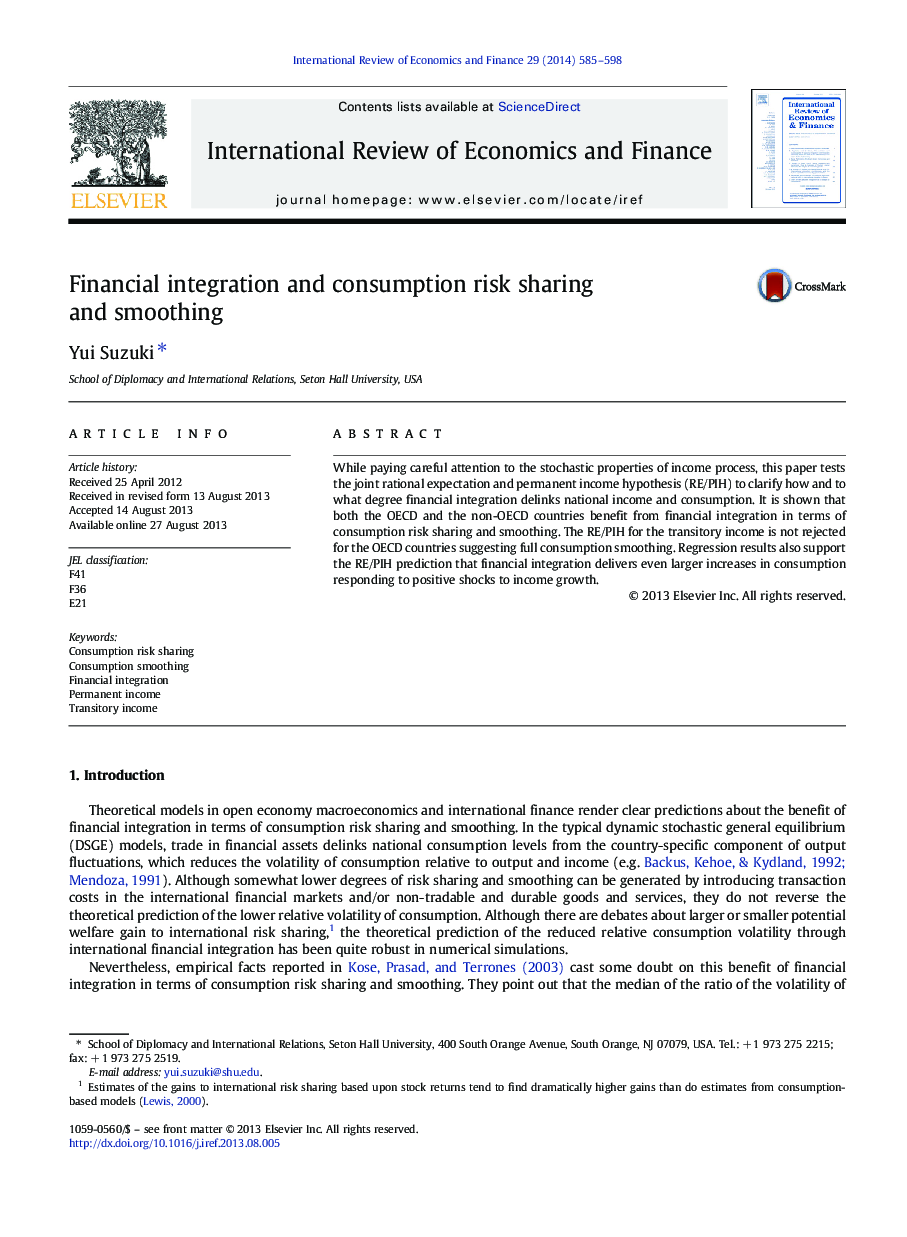| Article ID | Journal | Published Year | Pages | File Type |
|---|---|---|---|---|
| 5083687 | International Review of Economics & Finance | 2014 | 14 Pages |
â¢I clarify how financial integration delinks national income and consumption.â¢Careful attention is paid to stochastic properties of income process.â¢The OECD and the non-OECD benefit in terms of consumption risk sharing and smoothing.â¢The RE/PIH for the transitory income is not rejected for the OECD.â¢Integration increases consumption more reacting to positive shocks to income growth.
While paying careful attention to the stochastic properties of income process, this paper tests the joint rational expectation and permanent income hypothesis (RE/PIH) to clarify how and to what degree financial integration delinks national income and consumption. It is shown that both the OECD and the non-OECD countries benefit from financial integration in terms of consumption risk sharing and smoothing. The RE/PIH for the transitory income is not rejected for the OECD countries suggesting full consumption smoothing. Regression results also support the RE/PIH prediction that financial integration delivers even larger increases in consumption responding to positive shocks to income growth.
